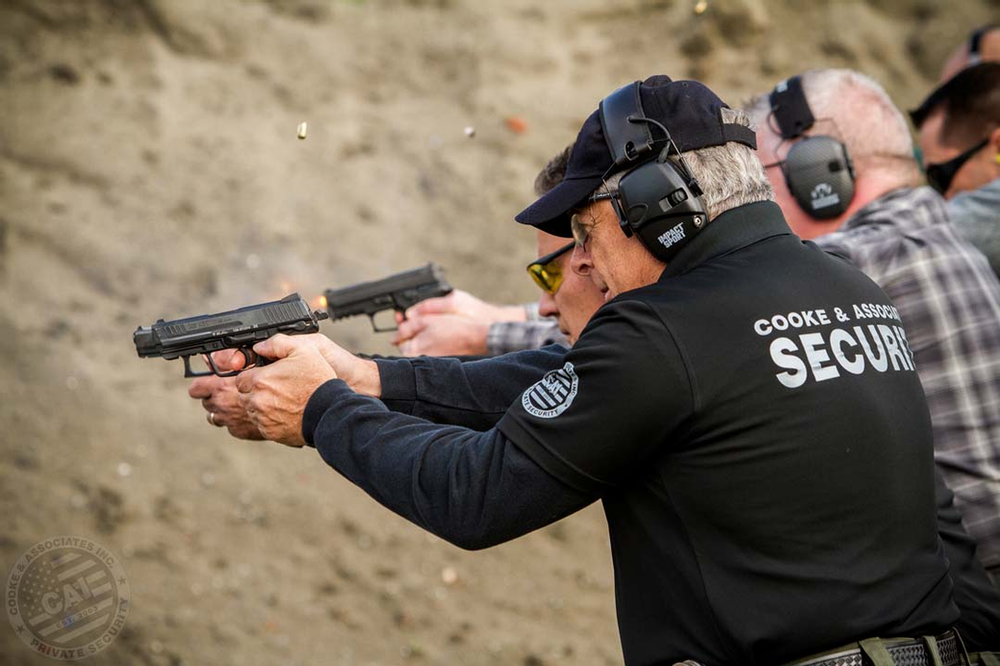Over the next few months hundreds of security professionals will descend upon Paris and neighboring cities to begin preparation in securing one of the largest global events. The 2024 Olympics will undoubtably be a celebration of athleticism and international camaraderie, but in today’s times they also present a significant security challenge in many ways. With thousands of athletes, officials, and spectators congregating in one location, the risk of terrorist threats looms large.
In Part One of our series Insights into Security and the Olympics, we explored the types of incidences that the Olympic games could face. In Part Two, we look at past incidents of terrorism targeting the Olympics, ditching the EP ego, and forming key relationships for a successful detail.
The Olympics and Terrorism
Terrorist organizations view major events like the Olympics as high-profile targets that offer the opportunity to cause maximum disruption and one that could attract global attention to their cause. The dense concentration of people, the symbolic significance of the event, and the extensive media coverage make the Olympics an attractive target for terrorists seeking to instill fear and undermine security.
In 1972 at the Munich Olympics, the world witnessed one of the most infamous terrorist attacks in Olympic history. Palestinian terrorist group Black September abducted eleven Israeli athletes and coaches from the Olympic Village. Despite a botched rescue attempt by German authorities, all hostages were killed during the rescue operation at a nearby airport. This tragic event highlighted the vulnerability of Olympic venues to terrorist attacks and underscored the need for robust security measures.
In 1996 during the Summer Olympics in Atlanta, a terrorist detonated a bomb in Centennial Olympic Park, killing two people and injuring over 100 others. The bomb, which was hidden in a backpack, exploded during a concert, causing chaos and panic among the crowd. The incident served as a stark reminder of the constant threat posed by both domestic and international terrorists during major sporting events.
In the last few weeks leading up to the 2014 Winter Olympics in Sochi, Russia, many of us experienced a sudden and significant increase in security measures due to intelligence which indicated threats from Islamist militants in the North Caucasus region. These threats included the possibility of suicide bombings and attacks targeting Olympic venues and transportation infrastructure. Russian authorities implemented extensive security measures, including the deployment of tens of thousands of security personnel and the implementation of strict access controls around Olympic facilities.
With the escalating global tension and the increasing frequency of protests worldwide, coupled with the extremes that activists have demonstrated in recent years, it is anticipated that there may be attempts to disrupt this year’s Olympics. The convergence of geopolitical unrest, socio-economic disparities, and environmental concerns has fueled a heightened sense of activism and dissent on the global stage. Such sentiments could manifest in various forms of disruption, ranging from peaceful demonstrations to more disruptive actions aimed at drawing attention to specific issues during the Olympic events. While the Olympics traditionally serve as a platform for unity and sporting excellence, the current climate suggests that they may also become a focal point for expressions of dissent and resistance against perceived injustices. As the world watches, the intersection of politics, activism, and sport may shape the narrative of this year’s Games in unforeseen ways. To be successful there must be a formula consisting of planning, communication, intelligence gathering, and relationship building.
Ditching the EP Ego
Let’s face it. Our industry is full of egos and attitudes and oftentimes that results in a lack of information sharing. We’ve seen it between government agencies and between executive protection teams.
The scenario is all too familiar. As an EP agent, you walk into a pre-planning meeting and there sits a room full of EP agents in absolute silence checking out that one agent’s new tacti-cool sling bag. Then walks in the highly motivated event organizer who kicks off the meeting asking everyone to introduce themselves. An awkward silence hits the room followed by a grunt of “I guess I’ll go first.” Then a series of low but confident mumble of names with where they’re from goes around the room. This is then followed by a brand new venue security manager who predictably says there’s no known threats, explains where lost and found is located, and then asks the group if there’s any known threats. Awkward silence again hits the room with some agents unconvincingly shaking their heads no while those who have properly prepared and collected intelligence look in amazement knowing there was at least 5 activist posts on social media announcing a planned protest.
Credentials are handed out and the meeting is concluded. Day 1 begins and up walks a group of activists blocking entrances and protesting companies who had EP teams at the pre-planning meeting. For those who properly prepared and collected intel, this is the same group of activists that posted days earlier that they would be showing up to protest just like they had in years past.
The sharing of information is key no matter the size of the event and egos and attitudes must always be put aside in order for everyone to succeed.
“In 2021, and 2022 we monitored social platforms and collected intelligence to support our EP teams leading up to a highly publicized healthcare event” said CEO Harry Arruda. “Because of our experience with the event and expertise with activist groups, we knew that a well-known biopharmaceutical company was always the target of protests and disruption. During our advance we tried sharing intel of a planned protest at the event and at the CEOs residence with the company’s security detail, but their egos got in the way, and we were told “We’re good.” Needless to say, the team was unprepared, the protests occurred, and our staff had a front row seat to the chaos.”
Share To Succeed
The sharing of information among multiple teams can be a difficult task with important information sometimes getting lost along the way.
The two most effective ways we’ve seen information shared is through a centralized source which can come in the form of an onsite analyst sharing intel from a hotel room to an attending team’s offsite GSOC taking responsibility for sharing information among all teams. In either case, daily intel reports are shared via email or messaging platforms to the EP teams each morning and then information is pushed out as needed throughout the day.
For smaller events or those with limited security resources, the more commonly used method of sharing information through apps such as WhatsApp or Signal has been a tried and true method in recent years.
When setting up any kind of messaging group for intel purposes, it’s important to consider several key factors to ensure effective communication and organization. Here are some key things to have set up:
Group Name and Description: Choose a descriptive code name for the messaging group that reflects its purpose but doesn’t provide any confidential information. Oftentimes we use logos or colors to differentiate what the group is for.
Admins and Moderators: Assign responsible individuals as group admins or moderators who can manage the group, add or remove members, and ensure that discussions remain on topic and respectful.
Clear Purpose and Guidelines: Clearly define the purpose of the group and establish guidelines for communication, including topics that are appropriate for discussion and any rules regarding behavior or posting. Be clear that the group is just for sharing intelligence and not for individual ops purposes or for social commentary.
Limit the Members: For groups which will contain several teams, its recommended that only one person from each team is allowed in the group. That person can then determine if the information is appropriate for their own team. This will limit “noise” during the detail.
Privacy Settings: Decide on the group’s privacy settings based on your preferences. Options include public (anyone can join), private (only members can be added by admins), or invite-only (members can join only via invitation).
Verify Information: People tend to post a lot of information so filtering vetted information before posting is key.
File Sharing and Document Storage: Enable file sharing within the group to facilitate the distribution of documents, presentations, images, and other relevant files. This is good when someone has a photo of a POI, a vehicle, a hazard, or an updated floor plan.
Ending the Group: At the end of each event, remove members and delete the group. This will reduce the chances of post event “noise” such as late night jokes, memes, and Craig’s Lists type ads.
Forming Key Relationships Beyond the Basics
We all know the basics of who to meet when preparing for a detail – the venue’s security manager, the credential person, valet etc. But as any seasoned agent will tell you, the world is small and in today’s times, building relationships is more effective long term then simply making contact with a person for a smooth arrival or departure.
“During advances, I’m always looking to make contact with key people and forge a business relationship that could possibly last beyond the detail itself” says CEO Harry Arruda. “When I attend an advance meeting, I’m always attentive to who is speaking but at the same time I’m scanning the room looking for others who might know more. When I walk venues, I’m always stopping and talking to housekeepers, groundskeepers, janitors, and bus boys. The venue figureheads may know everything, but the frontline staff are the ones that really know the ins and outs of a property or the area. On a press junket in Rome some 20 years ago, I stopped and talked to a hotel concierge and to this day I’m still in touch with them and have called on them for assistance both on and off property.”
Given the global nature of the Olympics, look beyond making contact with the standard set of contacts and consider building relationships with:
· Local law enforcement
· Regional Security Officers and local embassy personnel
· Taxi and car service drivers
· Doormen
· Aviation center managers
· Hotel security
· Public works personnel
In our next installment of Insights into Security and the Olympics, we explore what movement in and around Paris will look like and what obstacles you should plan for.
If you miss part one you can find it HERE.


